
Forget Academicians & Intellectuals, Exciting times are ahead for the stock market
I pointed out earlier that some junkyard academicians and intellectuals are doubting the great India growth story.
Shekhar Gupta, an intellectual, made a mockery of himself by claiming that the situation is so grim that people have stopped buying underwear.
Indians are not buying underwear. That’s how bad the economy is
ThePrint's special correspondent Himani Chandna @ChandnaHimani reportshttps://t.co/9aLdxMFqQQ
— Shekhar Gupta (@ShekharGupta) October 25, 2019
Arvind subramanian, an academician, alleged in a frivolous and irresponsible manner that the economy is headed into the “ICU“.
India facing 'Great Slowdown', economy headed to ICU: Arvind Subramanianhttps://t.co/AqfNMUVqjx pic.twitter.com/4UbA0gMk4Y
— Livemint (@livemint) December 18, 2019
He also claimed that he is puzzled as to why the stock market is buoyant despite the alleged ailments in the economy.
It's a 'puzzle' for me why stock market is buoyant while economy is sinking: Arvind Subramanianhttps://t.co/WIusmwjBrz pic.twitter.com/Cf13COHcls
— Livemint (@livemint) December 20, 2019
Raamdeo Agrawal pulled up the junkyards and gave them a piece of his mind.
He contemptuously described them as “jokers“.
“All the jokers who are coming here and talking, nobody has any clue,” he thundered.
Raamdeo Agrawal has amassed a massive fortune in excess of Rs. 1000 crore from the stock market and grown his wealth 1660x at 28% CAGR (by outperforming Warren Buffett).
It is obvious that he knows what he is talking about in comparison to the baseless opinion and allegations of the junkyards.
Despite slowdown, India has outperformed emerging markets by 17%
Ridham Desai, the distinguished Managing Director of Morgan Stanley, has now provided a brilliant point-by-point rebuttal on why the slowdown is not as bad as is made out by the leftists.
In fact, the Indian market has outperformed its counterparts in the emerging markets, a point conveniently ignored by the doomsday sayers.
“Below the surface, the story is not as bad. Despite India’s lacklustre absolute performance, it still managed to outperform emerging markets by 17 percentage points (ppt) cumulatively over the past 10 years, although this is lower than the 56-ppt outperformance in the prior decade,” Ridham has stated.
He also pointed out that the GDP growth averaged 7.2 percent which is better than 6.9 percent in the previous decade.
Even the nominal GDP growth was better at 13 percent versus 12 percent, he stated.
He has also emphasized that Foreign Portfolio Investors (‘FPI’s’) have almost doubled their purchases from $62 billion to $112 billion.
There is also a stupendous growth in domestic mutual fund flows, which rose from $9 billion to $54 billion.
Domestic flows are outpacing foreign flows for the first time since FPIs started investing in India in 1993.
“India has been one of the favourite markets for global investors since the turn of the millennium. It offers strong demographics, a population with the propensity to spend, a strong entrepreneurial class, and innovation – the very ingredients Adam Smith thought would lead to a prosperous nation,” he has added with understandable pride in his voice.
After a detailed analysis of several complex macro-economic issues, Ridham has confidently asserted that a “mean reversion” in corporate margins is expected and that we are in for an “exciting ride” ahead.
Indian markets are in buy territory: Ridham Desai, @MorganStanley
@rndx1 #Markets #OilPrices pic.twitter.com/eGPFl3kjb0— ET NOW (@ETNOWlive) August 7, 2019
Increase in FPI limit will cause Billions of dollars to gush in
Few are aware that there are presently limits as to the extent of foreign investment permissible in specific sectors.
For instance, the maximum permissible foreign investment in the much-fancied insurance sector is 49%.
These limits are expected to be increased across the different sectors by April 2020.
According to a note by Sheela Rathi and Ridham Desai, the consequence of this is that India’s weighting in the MSCI Emerging Markets Index will be increased by about 70 basis points.
This will cause an inflow of nearly $2 billion and $2.5 billion of dollars into the Indian stock markets.
The inflows will add to the demand that has driven Indian stocks to record highs, the duo has concluded.
Foreign investors have already pumped in a mammoth $1.7 billion into the stock market this year as of Jan. 20.
Morgan Stanley's Ridham Desai sees passive flows of $2.5 billion into India. pic.twitter.com/Ef55BAmi72
— BloombergQuint (@BloombergQuint) December 16, 2019
#CNBCTV18Exclusive | If FPI limits in India converge with FDI limits, it will be a big positive, says Ridham Desai of Morgan Stanley pic.twitter.com/Gs1VDYfc35
— CNBC-TV18 (@CNBCTV18Live) September 23, 2019
Top 20 stocks to buy now for 2020
Morgan Stanley has recommended 20 top-quality stocks for 2020.
These stocks include Bharti Airtel, ITC, HDFC, HDFC Bank, ICICI Bank, MCX, Motherson Sumi, Gujarat Gas, NTPC, M&M Financials, Shriram Transport, Indian Hotels and BEL.
#CNBCTV18Market | Morgan Stanley expecting strong Q3 earnings from Tata Global, Avenue Super, ITC, Nestle India, Jubilant Food & Asian Paints, among the FMCG space pic.twitter.com/QZ8pLS2RB7
— CNBC-TV18 (@CNBCTV18Live) January 9, 2020
Maruti is the only company from India to find a place in Morgan Stanley’s list of global longs (stock with potential upside). The firm believes the stock is better value for money than others and has an upside as high as 73%. #MOMarketUpdates
— Motilal Oswal Financial Services Ltd (@MotilalOswalLtd) January 8, 2020

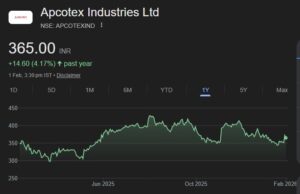
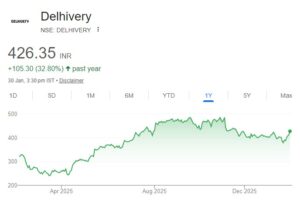
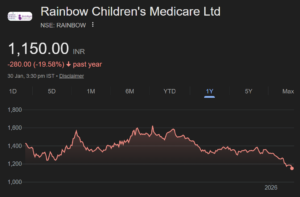
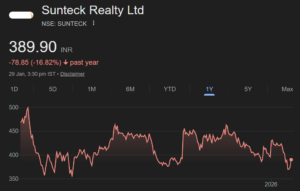
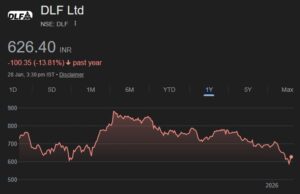

Anyone opposing the current govt becomes junkyard and a joker. How biased can reporting be. 🙂
Maybe the IMF will be labeled junkyard too, if it speaks its mind on the state of affairs.